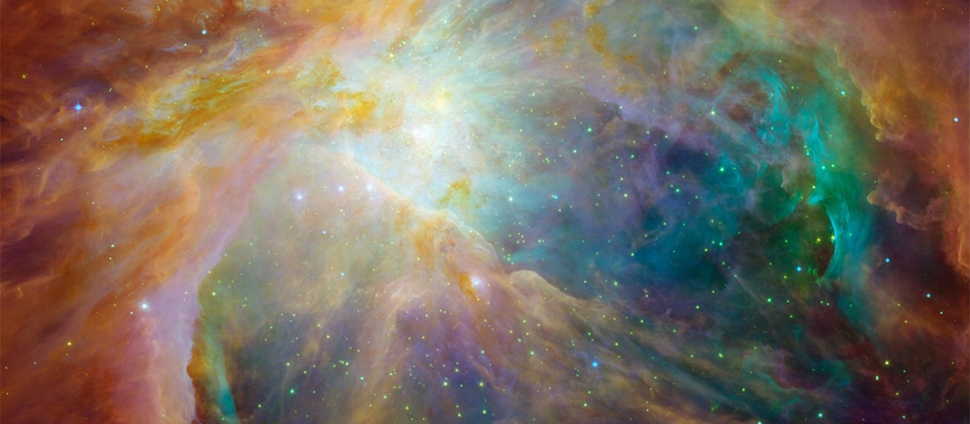Document Type
Article
Publication Date
3-21-2019
Publication Title
The Astrophysical Journal
Abstract
Mechanisms regulating the escape of Lyα photons and ionizing radiation remain poorly understood. To study these processes, we analyze Very Large Array 21 cm observations of one Green Pea (GP), J160810+352809 (hereafter J1608), and Hubble Space Telescope Cosmic Origins Spectrograph (COS) spectra of 17 GP galaxies at . All are highly ionized: J1608 has the highest [O iii] λ5007/[O ii] λ3727 for star-forming galaxies in Sloan Digital Sky Survey, and the 17 GPs have [O iii]/[O ii] ≥ 6.6. We set an upper limit on J1608's H i mass of , near or below average compared to similar-mass dwarf galaxies. In the COS sample, eight GPs show Lyα absorption components, six of which also have Lyα emission. The H i column densities derived from Lyα absorption are high, cm−2 = 19–21, well above the LyC optically thick limit. Using low-ionization absorption lines, we measure covering fractions () of 0.1–1 and find that strongly anticorrelates with Lyα escape fraction. Low covering fractions may facilitate Lyα and LyC escape through dense neutral regions. GPs with all have low neutral gas velocities, while GPs with lower have a larger range of velocities. Conventional mechanical feedback may help establish low in some cases, whereas other processes may be important for GPs with low velocities. Finally, we compare with proposed indicators of LyC escape. Ionizing photon escape likely depends on a combination of neutral gas geometry and kinematics, complicating the use of emission-line diagnostics for identifying LyC emitters.
Volume
874
Issue
52
DOI
doi.org/10.3847/1538-4357/ab08eb
Creative Commons License

This work is licensed under a Creative Commons Attribution 4.0 International License.
Rights
Licensed to Smith College and distributed CC-BY under the Smith College Faculty Open Access Policy.
Version
Author's Accepted Manuscript
Recommended Citation
McKinney, Jed H.; Jaskot, Anne E.; Oey, M. S.; Yun, Min S.; Dowd, Tara; and Lowenthal, James, "Neutral Gas Properties and Lyα Escape in Extreme Green Pea Galaxies" (2019). Astronomy: Faculty Publications, Smith College, Northampton, MA.
https://scholarworks.smith.edu/ast_facpubs/8


